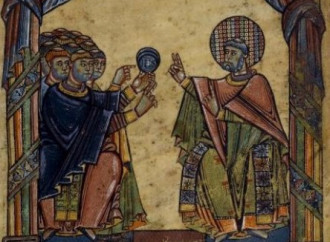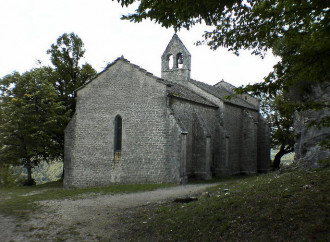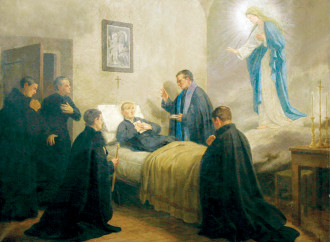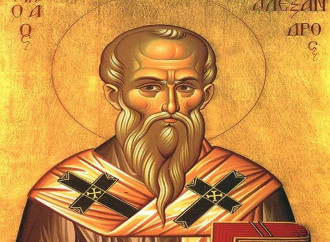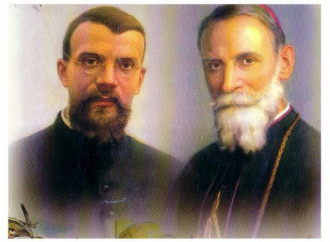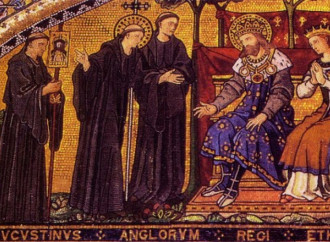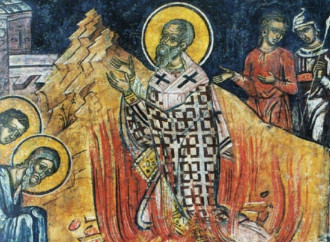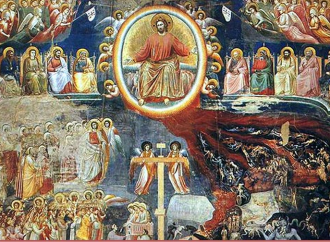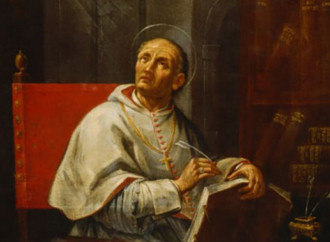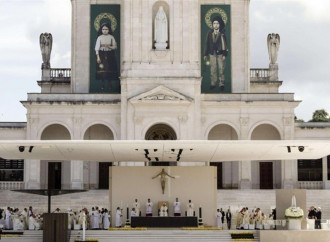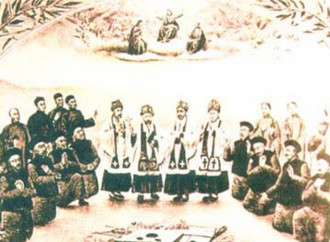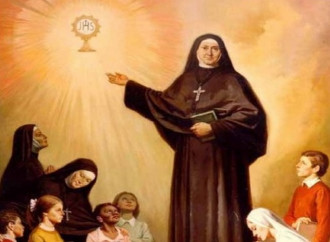Saint Albinus of Angers
Attracted to the life of the monks, he entered the monastery of a small Breton village and became its abbot in 504.
Saint Romanus of Condat
Wanting to imitate the ancient hermits, at 35 years old he retired to live under a large fir tree in Condat (today's Saint-Claude).
Saint Gabriel of Our Lady of Sorrows
He made a vow to spread the devotion to the Virgin of Sorrows, whom he often called in his letters "our Co-redemptrix"
Saint Alexander of Alexandria
St. Alexander of Alexandria (c. 250-326 / 328) is remembered above all for the important role he played in the conflict of the heresiarch Arius, first in the Egyptian city and then at the Council of Nicaea.
Saints Aloysius Versiglia and Callistus Caravario
When these two Salesians in love with Christ first met in 1921, Monsignor Aloysius Versiglia (1873-1930) was passing through Turin...
Saint Æthelbert
He was the first English sovereign to convert to Christianity. His life came to a turning point when he married Bertha, a devout Christian woman
Saint Polycarp
He had the grace of being a direct witness of the charisms of the apostles; he was a disciple of Saint John the Evangelist, who consecrated him Bishop of Smyrna
Ash Wednesday
Ash Wednesday marks, in the Roman rite, the beginning of Lent, that is, of the "intense" liturgical period and of a special call to penance ending before the Holy Thursday Mass in Coena Domini.
Saint Peter Damian
He drafted a Rule stressing the importance of the "rigour of the hermitage" and defining the monastic cell as the "parlour where God converses with men"
Saints Jacinta and Francisco Marto
The Church celebrates the memorial of the two little shepherds on February 20th: these are the first non-martyred children to be proclaimed saints
Saint Lucy Yi Zhenmei
This exemplary Chinese catechist, who suffered martyrdom at the age of 47, had demonstrated virtuousness from childhood
Saint Geltrude Comensoli
The Eucharist was "Heaven on earth" to Saint Geltrude Comensoli (1847-1903), founder of the Institute of the Sacramentine Sisters which was consecrated to the perpetual adoration of the Blessed Sacrament and born from her love for Christ.
